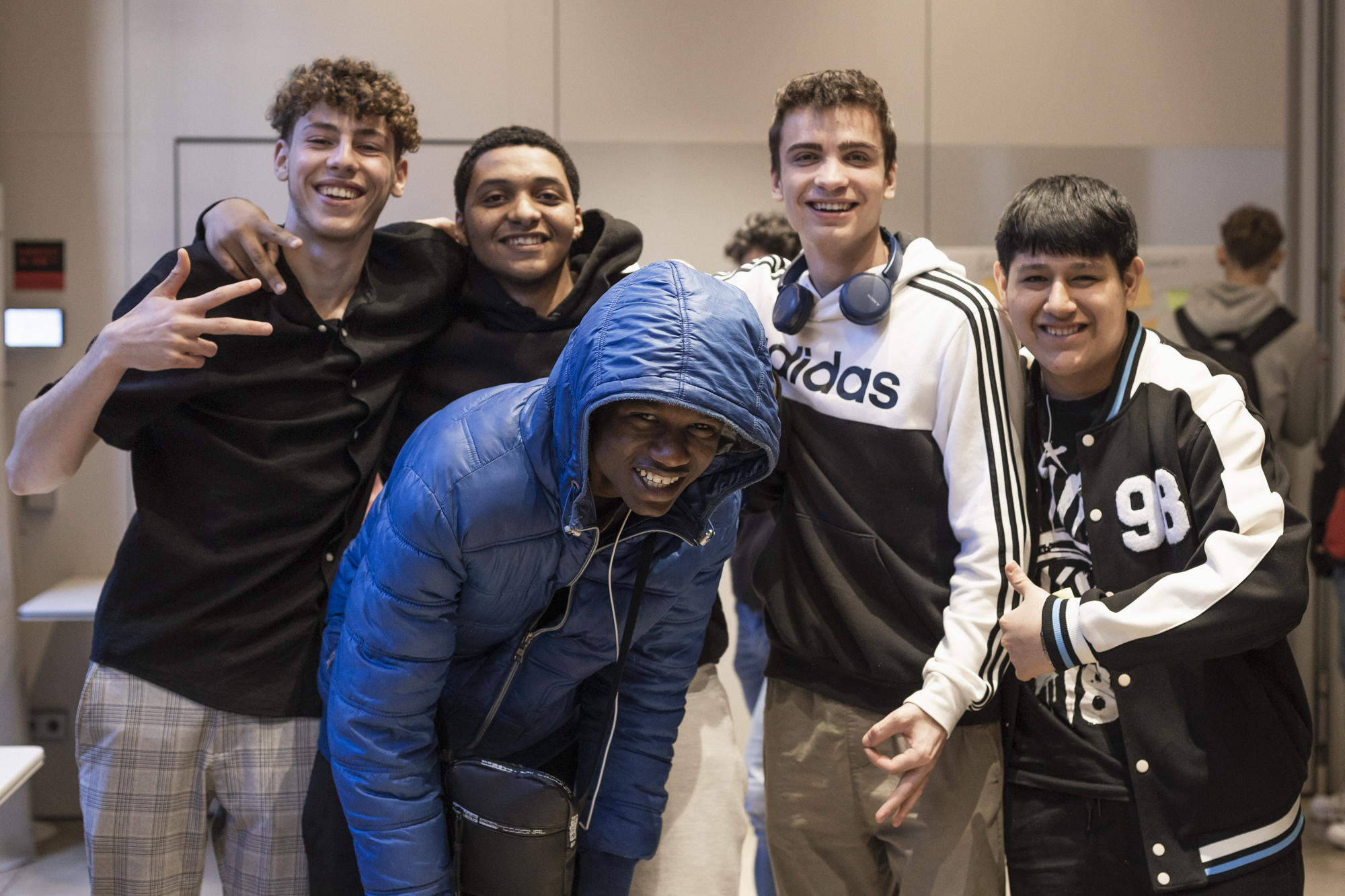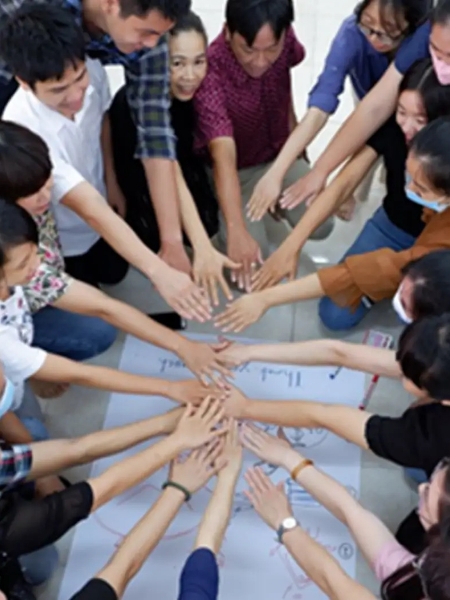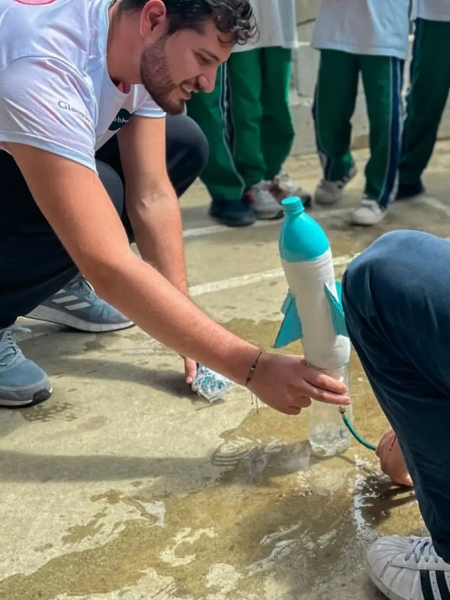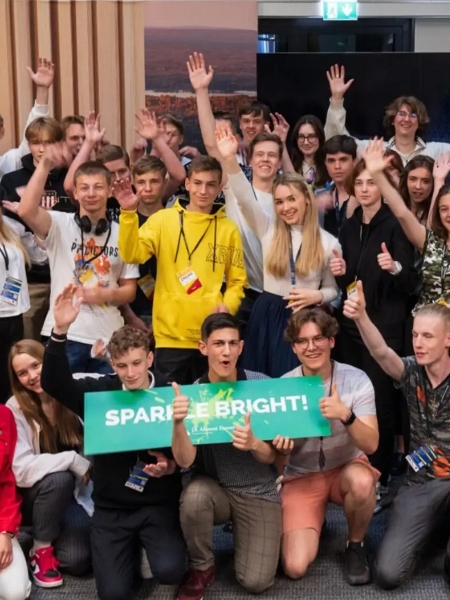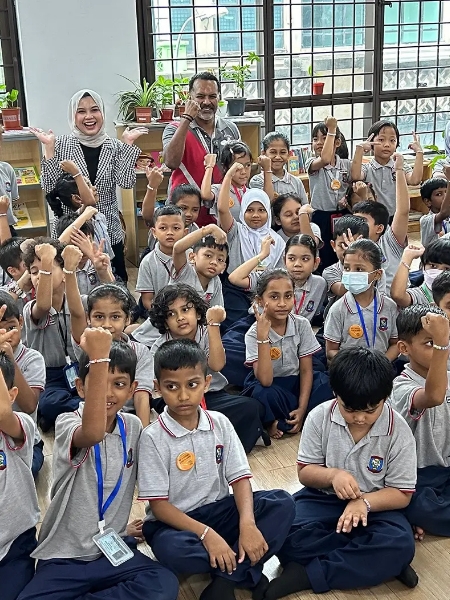Fundación Exit
Think Human Fund
Mission & History
Founded in 2000, Fundación Exit’s mission is to reduce the early school dropout rate of socially vulnerable young people through an innovative guidance model in which the involvement of companies maximizes the possibility of subsequent job placement.
Since Fundación Exit beginning, innovation has been one of the values of the entity. The design of its projects is always based on an analysis of the existing ecosystem, identifying those “gaps” that they must cover to achieve /a greater social impact focusing on youth at-risk. In the face of a rapidly changing labour market and worrying rates of school dropouts and youth unemployment, they believe it is essential to connect youth at-risk with professionals who can motivate, and guide them, from the reality of their companies, so they do not abandon their studies prematurely.
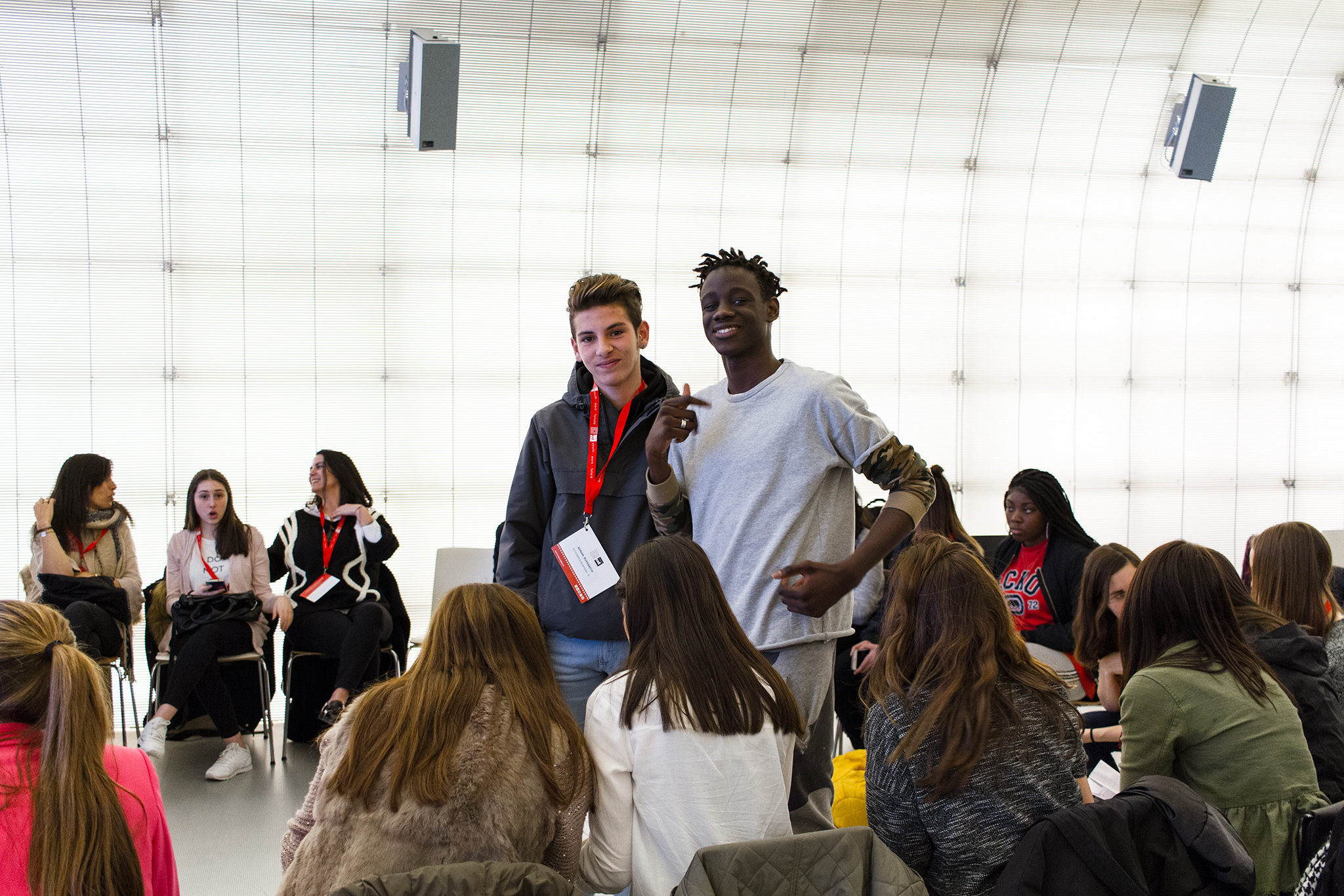
Country Information
Spain has the second highest early school leaving (ESL) rate in the EU, with 13.6% of youth completing only lower secondary education (EPA’24). This rate increased in 2023 for the first time in 13 years, moving away from the 9% target for 2030. The OECD’s “Education at a Glance 2021” report shows that low education levels contribute to high youth unemployment, affecting 32.2% of Spaniards under 25 (2023) versus 14.4% in the EU (Eurostat’23). The pandemic has worsened these issues (S. Bonilla, F. Felgueroso, March’21).
Fundación Exit notes a 30-50% dropout rate among disadvantaged students in their first year of vocational training, driven by insufficient guidance and motivation earlier in their education. To address these challenges, it is crucial to bridge labor market gaps and enhance post-secondary education opportunities with comprehensive guidance that supports emotional well-being, exploration, and decision-making.
The Need
Fundación Exit addresses early school leaving (ESL) and dropout among at-risk youth in Spain by focusing on vocational training continuity to improve educational and career outcomes.
To tackle the labor market mismatch, engaging youth in post-secondary education is crucial. The OECD’s 2022 report “How youth explore, experience and think about their future: A new look at effective career guidance” shows that career guidance—through company visits, professional talks, and self-reflection—boosts job prospects. Yet, fewer than 10% of Spanish 15-year-olds participate in key career exploration activities, compared to 45% in Denmark.
The report highlights that:
– Students must explore job options to plan their futures.
– Interaction with employers is essential.
– Real work exploration helps clarify career goals.
Given the fast-evolving labor market and pandemic-related challenges, effective guidance is vital for helping youth make informed decisions about their futures based on their skills, passions, and market needs.
The Project We Fund
The project aims to address early school leaving (ESL) among 1,000 at-risk youth (ages 15-19) in Madrid, Barcelona, and Seville who are enrolled in Basic Vocational Training (BVT). It offers comprehensive professional guidance to boost their motivation to continue their studies and helps them make informed decisions about their future. This guidance focuses on their talents, passions, and current job market needs, providing tools and experiences that can be pivotal for their lives. The model integrates self-awareness and emotional well-being to enhance their skills and employability from an early stage in their training.
Over the next three years, we will expand our support for at-risk youth in three phases:
– 2025: 200 youths (150 in 1st-year BVT, 50 in 2nd-year BVT)
– 2026: 350 youths (200 in 1st-year BVT, 150 in 2nd-year BVT)
– 2027: 450 youths (250 in 1st-year BVT, 200 in 2nd-year BVT)
Each participant will engage in a four-module process:
1. Self-Knowledge: Focus on emotional well-being, vocational interests, and abilities through activities led by experts in sports and art.
2. Exploration of the World of Work: Interact with corporate volunteers to understand various professions.
3. Experimentation with Professions: Gain practical experience through internships.
4. Decision-Making: Receive guidance on future educational and career choices.
The program will address high dropout rates in the 1st year and support 2nd-year students in defining their career paths and continuing their studies. In Barcelona, all four modules will be covered in the 12-month BVT program.
Objectives:
– Re-engage at-risk youth in their studies.
– Help them identify their competencies.
– Boost their confidence and professional development.
– Connect them with business opportunities and plan their training.
Impact Indicators:
– 90% complete the activities.
– 85% define professional goals.
– 90% gain better job market knowledge.
– 75% continue their education.
Our GenExit platform gamifies the guidance model, providing digital tools and monitoring for ongoing support.
The Result
Fundación Exit uses a project methodology with ongoing evaluation and improvement, certified by ISO 9001:2015 for managing training and labor integration for at-risk youth. Monitoring is conducted via the “GenExit” online platform, which provides real-time, transparent data on project outcomes using both quantitative and qualitative indicators. Participants use this platform to register and track their activities.
Surveys are administered to beneficiaries at the start and end of each project to gauge satisfaction and impact. Volunteers complete satisfaction surveys after each activity, and feedback is also gathered from educators and CSR heads of participating companies.
Data is collected in our CRM system, linked to Power BI dashboards, enabling detailed monitoring and adjustments to enhance project impact. The platform also generates corporate volunteering reports, detailing volunteer numbers, hours, and activity descriptions for participating companies.
2025 Midterm Report
Fundación Exit’s midterm report sheds light on outstanding progress and milestones achieved this year in Spain. With 212 direct and 779 indirect beneficiaries, the impact is profoundly significant through modules focused on career guidance and skill development. Corporate volunteers and educators have played a key role, strengthening the ecosystem by providing diverse opportunities for youth at risk.
Testimonies
Q: “What has the experience changed in you?”
A: “I think it has made me focus more on my future, on continuing to study to achieve my goals.” –Luis Morillas (CFA El Masnou- Comerç)-
Q: “What is your goal after going through the Coach? What are your next steps?”
A: “My goal is to continue to develop professionally and to study to get through the course. The next steps include continuing my education and looking for job opportunities that will be motivating for me in the future.” –David Martín Gil del IES Luis Vives-
Q: “What has the experience changed in you?” A: “The way to see life through the eyes of an adult and the motivation to continue preparing myself for life in the future.”
Q: “What goal have you set for yourself after going through the Coach? And what are the next steps?” A: “To finish my basic degree and to continue training myself in all aspects of my work and personal life.”
-Hugo Sancha García del IES Federica Montseny-

